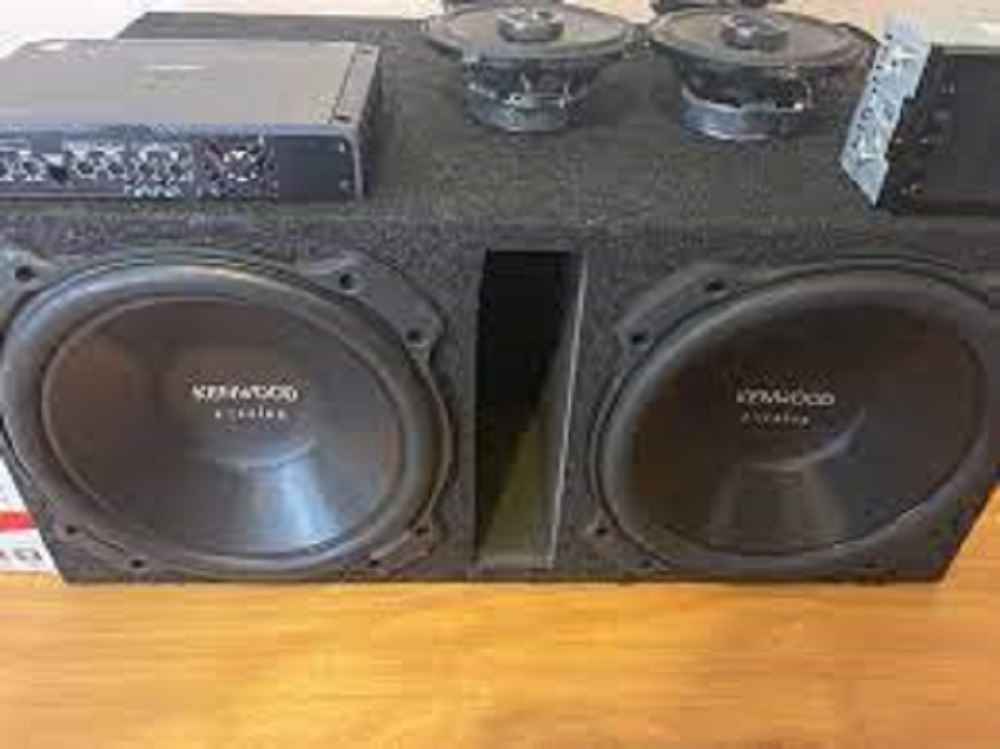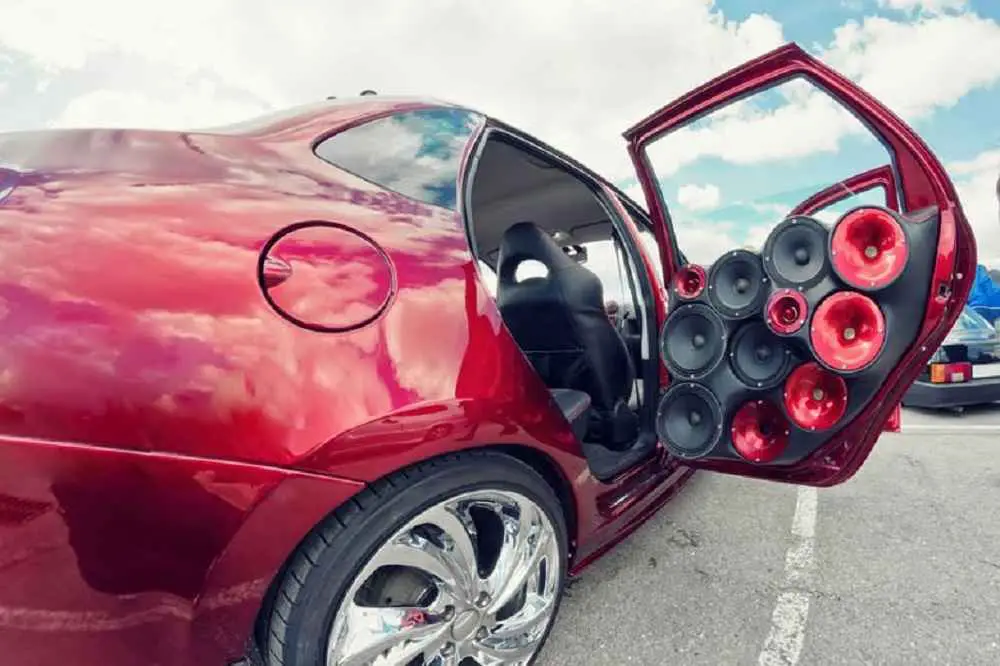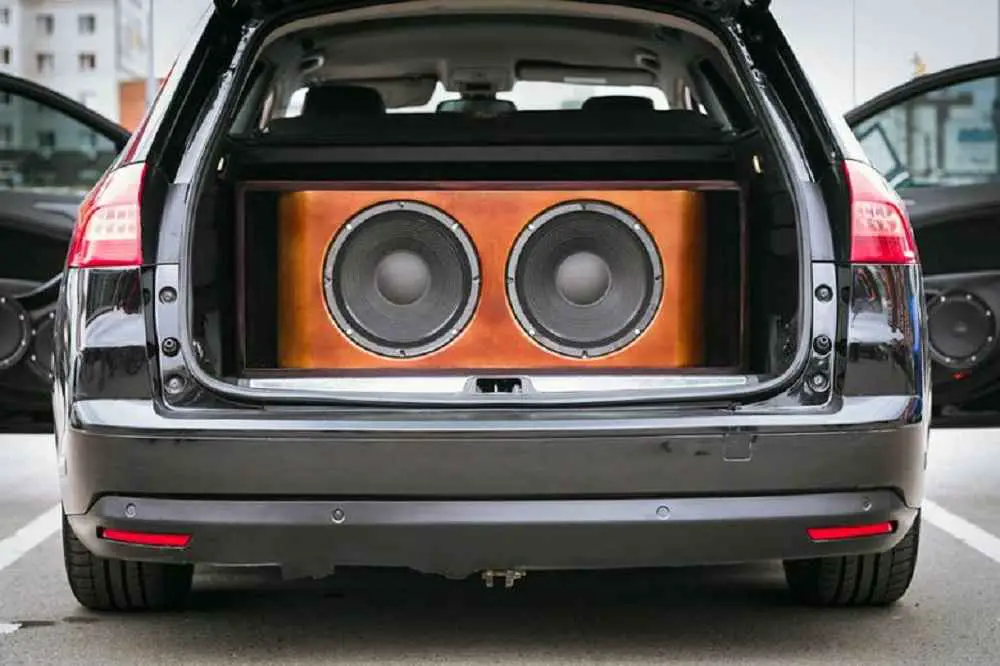Subwoofers are a vital component of any car or home sound system, providing the low-frequency bass that enhances the listening experience.
However, while subwoofers may help make driving more enjoyable for you, they generate a low-frequency noise that is difficult to filter out. This explains why you can feel the vibration and pounding of your subwoofer even when you can’t hear the majority of the music.

Such a low-frequency noise can be easily depicted by everybody both inside and outside your car. Hence, it is important to ask whether using a subwoofer is legal or not.
Subwoofers and Noise Pollution Laws
Noise pollution laws vary by state and municipality, but they generally aim to limit excessive noise that affects the quality of life of residents.
In many cases, subwoofers can contribute to noise pollution, particularly in residential areas where loud bass can be disruptive to neighbors. As a result, many areas have enacted laws that regulate the use of subwoofers and car sound systems.
Laws regarding the use of subwoofers vary widely, and it is essential to research the laws in your specific area.
Some common restrictions include limits on the volume of sound, specific times of day when subwoofers can be used, and the decibel (dB) level of the sound.
For example, in New York City, there is a city-wide noise code that limits the maximum volume of sound from car sound systems, including subwoofers, to 50 decibels between 7:00 am and 10:00 pm and 40 decibels between 10:00 pm and 7:00 am.
Subwoofers and Car Sound Systems
Laws regarding car sound systems and subwoofers can be particularly strict, given the mobility of vehicles and the potential for loud bass to be heard over a wide area.
In many cases, subwoofers must be installed in a manner that does not allow the sound to escape from the vehicle. Additionally, many areas have laws that prohibit the use of subwoofers in vehicles that are parked in residential areas.
Consequences of breaking car sound system laws can include fines, impoundment of the vehicle, and even criminal charges in some cases.
It is crucial to understand and follow the laws regarding car sound systems and subwoofers in your area to avoid legal consequences.

Subwoofers and Home Sound Systems
Laws regarding home sound systems and subwoofers are similar to those for car sound systems, but there are additional considerations for use in residential areas.
In many cases, there are specific times of day when subwoofers can be used, limits on the volume of sound, and restrictions on the decibel (dB) level of the sound.
It is essential to research the laws in your area to ensure that your home sound system complies with local regulations.
Consequences of breaking home sound system laws can include fines and legal action, particularly if neighbors repeatedly complain about the noise.
To avoid legal consequences, it is important to consider the impact of your sound system on your neighbors and community.
Considerations for Subwoofer Use
Regardless of whether you have a car sound system or a home sound system, there are several considerations to keep in mind when using subwoofers.
Soundproofing is one important factor, as it can help to reduce the amount of sound that escapes from your vehicle or home. Proper installation of subwoofers is also crucial, as improper installation can lead to the leakage of sound and result in legal consequences.
Finally, it is important to consider your neighbors and community when using subwoofers. Be mindful of the impact that your sound system has on those around you, and take steps to minimize any disruption.
In many cases, this may involve limiting the use of subwoofers to specific times of day, reducing the volume of sound, or using soundproofing to reduce the impact of the sound.
In summary, while it is not illegal to have and use subwoofers, the noise level must not disturb the peace of the neighborhood. Also, the sound from the subwoofer must not distract you from being conscious of your surroundings.

Conclusion
In conclusion, the use of subwoofers can be subject to laws regarding noise pollution, and it is essential to research the laws in your area.
Whether you have a car sound system or a home sound system, it is crucial to understand and follow the laws to avoid legal consequences and maintain positive relationships with your neighbors and community.
Additionally, it is important to consider factors such as soundproofing, proper installation, and the impact on neighbors and community when using subwoofers.
By following these considerations, you can enjoy the benefits of subwoofers while minimizing the potential for legal consequences and negative impact on your community.
What is the difference between a car subwoofer and a home subwoofer?
The primary difference between car subwoofers and home subwoofers is their intended use. Car subwoofers are designed to be used in vehicles, while home subwoofers are designed for use in residential areas.
This difference can impact the size, power, and design of the subwoofers, as well as the laws and regulations surrounding their use.
Can I use a car subwoofer in my home sound system?
Yes, it is possible to use a car subwoofer in a home sound system.
However, it is important to consider factors such as the power requirements and installation requirements of the subwoofer, as well as the laws and regulations surrounding the use of subwoofers in residential areas.
In some cases, it may be necessary to purchase a subwoofer that is specifically designed for use in a home sound system.
What is the purpose of soundproofing in relation to subwoofers?
Soundproofing is used to reduce the amount of sound that escapes from a sound system, such as a car or home sound system.
This can help to minimize the impact of the sound on neighbors and the community, and can also help to prevent legal consequences. In some cases, soundproofing may be required by law, and in other cases, it may be a best practice to reduce the impact of the sound.
What happens if I violate home sound system laws?
The consequences of violating home sound system laws can include fines and legal action. In some cases, repeated complaints from neighbors can lead to increased legal consequences, such as a court order to cease the use of the sound system.
It is important to research the laws in your area and to take steps to comply with these laws to avoid legal consequences.
What are the decibel (dB) restrictions for subwoofers in residential areas?
The decibel (dB) restrictions for subwoofers in residential areas can vary depending on the location and the laws in place.
In some cases, there may be specific times of day when subwoofers can be used, and in other cases, there may be limits on the volume of sound or restrictions on the decibel (dB) level of the sound.
It is important to research the laws in your area to determine the restrictions that apply to the use of subwoofers in residential areas.
